
As seen in the Fall 2024 DU Review magazine
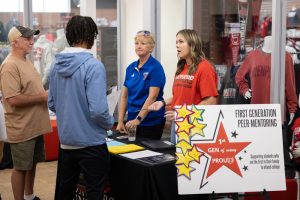 According to the National Center for Education Statistics data, first-generation students face significant academic, financial and cultural challenges and tend to graduate at lower rates than their peers. Currently, 52% of DU students are first-gen, meaning neither parent has a bachelor’s degree.
According to the National Center for Education Statistics data, first-generation students face significant academic, financial and cultural challenges and tend to graduate at lower rates than their peers. Currently, 52% of DU students are first-gen, meaning neither parent has a bachelor’s degree.
Dr. Jodi Hicks, Director of Student Transitions and Academic Readiness at Davenport, has made it her mission to change this.
“My purpose is to support and encourage students to be the best they can be,” said Hicks. “Any program like this that is successful requires a passionate champion and that’s my role.”
“We reach out with intentionality during the first year as it’s the most critical,” said Hicks. “If we can get a student to succeed and stay the first year, their chances of graduating increase.”
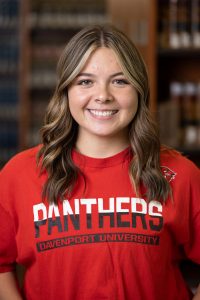 Since Davenport’s First-Generation Initiative launch in 2020, the team has developed a first-gen and parent/family website, celebrate National 1G day annually, and are now featured in the “I’m First! Guide to College” book.
Since Davenport’s First-Generation Initiative launch in 2020, the team has developed a first-gen and parent/family website, celebrate National 1G day annually, and are now featured in the “I’m First! Guide to College” book.
In the fall of 2023, academic mentors were embedded in seven math classes to provide additional support to students. Student persistence in those classes was 93%, compared to other sections at 85%. To date, Davenport has trained more than 400 faculty and staff on first-gen needs and numerous departments have contributed to a student success handbook.
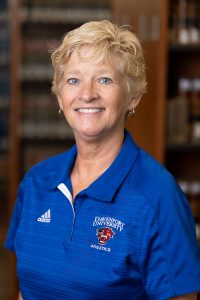 “Everyone has a piece of it,” said Hicks. “All our departments have come together for a unified need.” Arguably, the most impactful element of the program is peer mentoring. It provides another connection point at the university, helping foster feelings of belonging.
“Everyone has a piece of it,” said Hicks. “All our departments have come together for a unified need.” Arguably, the most impactful element of the program is peer mentoring. It provides another connection point at the university, helping foster feelings of belonging.
Participation in the mentoring program has grown each year since its inception. Retention has also increased each year. From Fall 2023 to Fall 2024 the retention rate of mentees was 79% compared to those who chose not to participate (50%).
Remon Samara, 45, is a first-generation student who attends classes through Davenport’s Lansing campus. He’s always had a passion for helping others and after working in the restaurant and construction fields, he wanted a change. He’s now pursuing his Bachelor of Science in Nursing degree.
As a first-gen student, he said his toughest challenge was fitting in at his age. He was able to connect with Hicks through the ACES class, a first-year success course designed to help first-generation students acclimate to university life.
“I’m not computer savvy and taking online courses was new to me,” Samara said. “Career advisors, coaches, everyone is available, and I utilize them when I can.”
While not a first-generation student herself, Cassidy Townsend is a first-generation mentor and the new part time mentoring program coordinator. Cassidy is scheduled to graduate in December with a bachelor’s degree in business Administration.
“As a mentor, I’m a friendly face around campus, helping others make friends, helping with homework,” said Townsend. “If students are struggling, I get them in contact with the right people. I help them feel at home in a new place.”
“Asking another student is a little less pressure than asking a professor. It’s often easier to shoot a text to someone your age.”
Through Davenport’s Online Global Campus, a mother-daughter first-generation duo in Kinross, Michigan, is pursuing associate’s degrees in health information technology. Through research, they each discovered this degree would allow them much-needed flexibility and a chance to work from home. They now support and encourage each other.
Karen Lieb works as an LPN in the upper peninsula and her daughter Katelin Britton, 26, cares for her disabled brother full-time at home.
“I didn’t have to take the ACES class. I wanted to,” said Lieb. “I’m so thankful I did. The tools I’ve gotten from it are amazing.”
Britton agreed. “The course helped me figure out how to better manage my time,” said Britton. “I thought I was more of a visual learner. But through ACES, I found I have so many different ways to learn – I’m not just in one or two categories. I learned so much about myself in just seven weeks.”
As persistence and retention rates continue to rise, Hicks is committed to expanding the program’s reach.
“The most significant aspect of our first-gen programming is the powerful impact it makes on the friends and family members of the first-gen graduate,” Hicks said. “It inspires others to strive for a degree and reach their goals.”

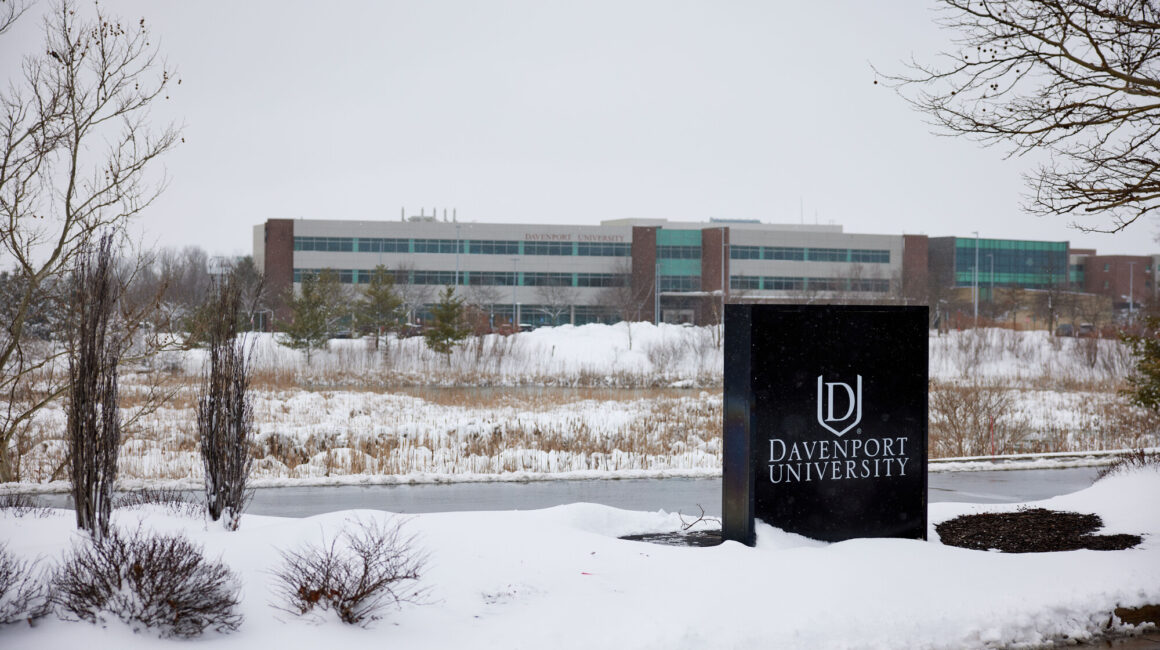
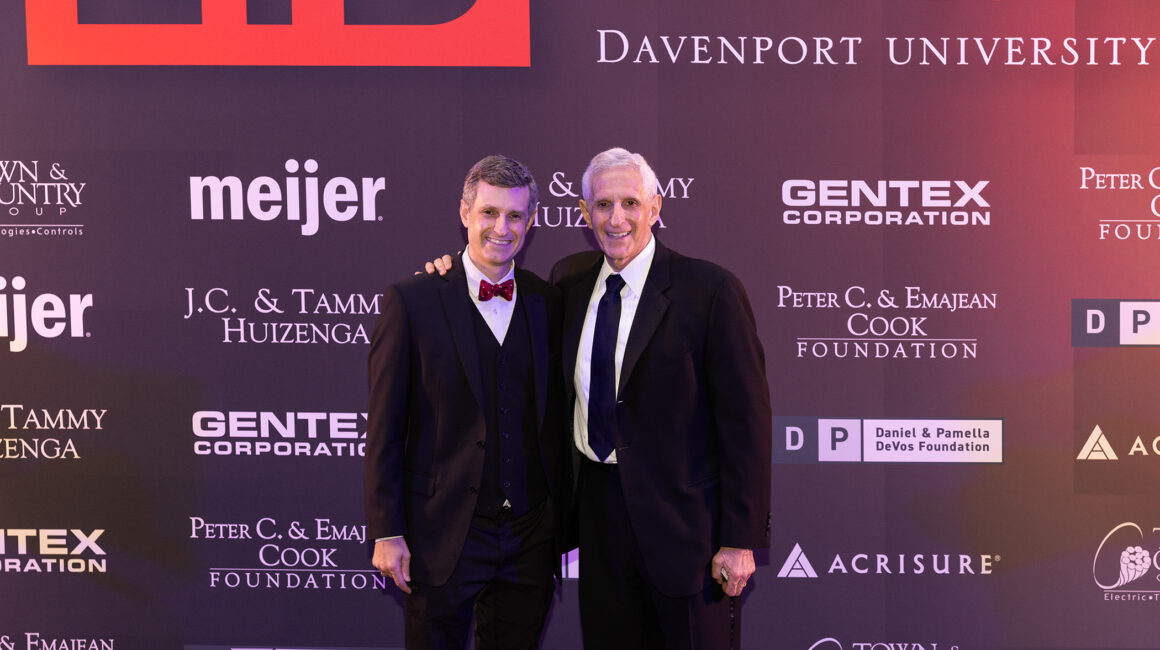
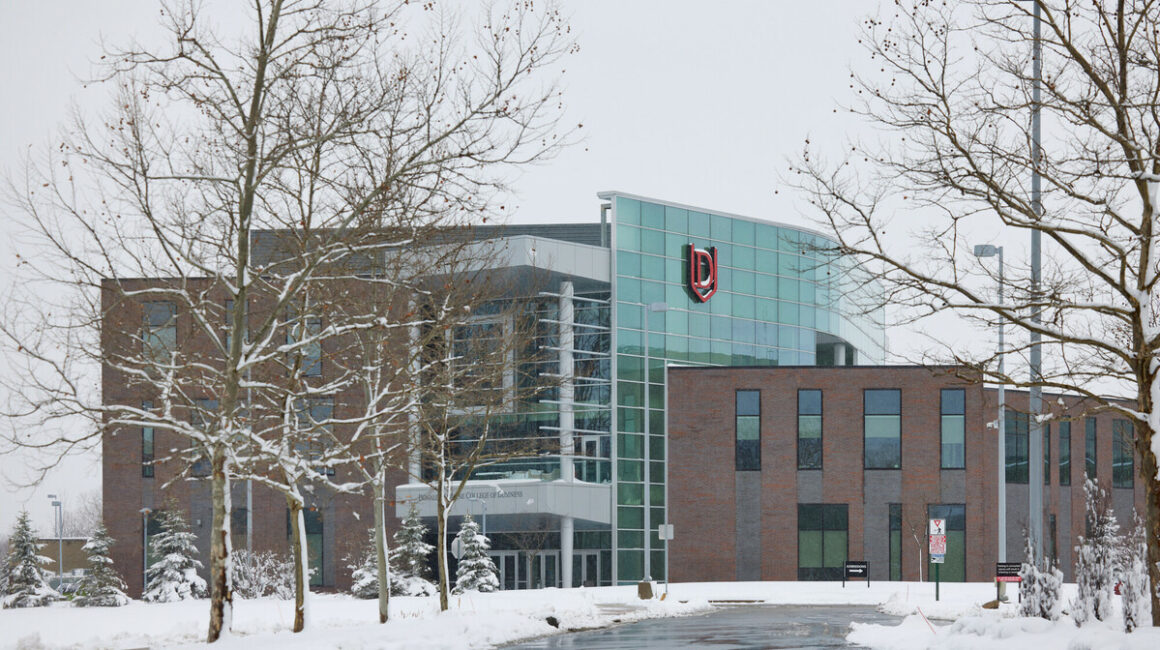
No Responses